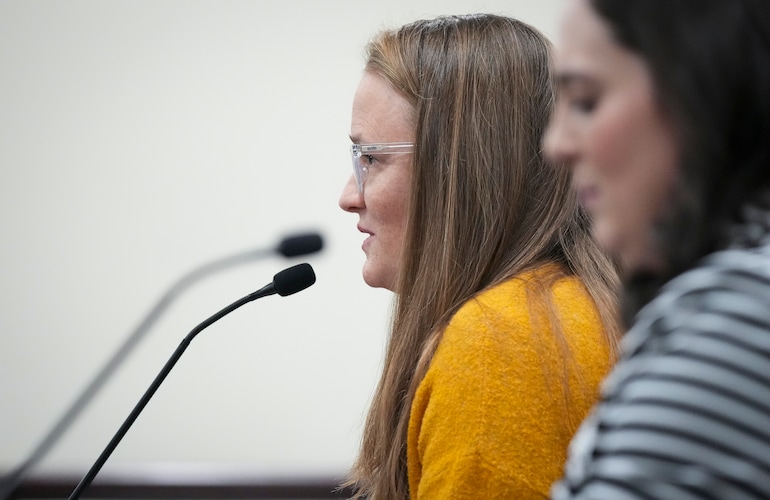How much control should a parent have over what their child talks about with a school therapist? That question is at the center of a bill being considered at the Utah Legislature and on Friday, it put the state’s therapy associations at odds with parent groups.
Parents, including Utah Parents United, who support HB281 said they worry about what therapists are telling children. The bill would require mental health professionals to disclose to a parent any time they met with their child and to share details about what they discussed.
The bill also would allow parents to make any specific topic off-limits, banning a school therapist from addressing it during treatment. That potential control appealed to some parents who spoke publicly Friday, including a mother who said she would not be comfortable if a therapist asked about whether her child was suicidal.
“That would probably be my number one topic. You will not ask my child if they’re feeling suicidal,” Brooke Stephens said. “That’s a leading question and that’s just one of the topics I would list.”

(Bethany Baker | The Salt Lake Tribune) Brooke Stephens, the Civic Engagement Director for Utah Moms for America, gives public comment in support of HB281, a bill that increases parental consent requirements for mental health professionals in the public education system, during a House Education Committee meeting at the Capitol in Salt Lake City Friday, Jan. 31, 2025.
Therapists use widely tested assessments and are trained to address suicidal thoughts, including tailoring questions differently for younger children, according to representatives of the Utah Mental Health Counselors Association and the Utah Association for Marriage and Family Therapy.
The organizations and others pleaded with the Utah House Education Committee on Friday to stop the bill — arguing that requiring mental health workers to divulge what was discussed during sessions violates their ethics code and erodes trust with their clients. Allowing parents to limit the topics for discussion, some added, could make it difficult to determine whether a kid is being abused.
“It is rare that we get a direct disclosure of abuse,” said Sarah Stroup, with the Utah Association for Marriage and Family Therapy. “We see symptoms, we ask. We provide a safe space if they do need to disclose something. We are not allowed to ask prompting or leading questions. But if, for example, if a parent says we cannot talk about sex, then how do we assess for sexual abuse?”
HB281, which is sponsored by Rep. Stephanie Gricius, R-Eagle Mountain, also requires parental consent before a child can see a school therapist. That, however, is already state law; Utah parents have the right to make medical decisions for their children until they turn 18.
(Bethany Baker | The Salt Lake Tribune) Tami Rasmussen, who opposes HB281, a bill that increases parental consent requirements for mental health professionals in public education systems, listens during a House Education Committee meeting on HB281 at the Capitol in Salt Lake City Friday, Jan. 31, 2025.
Aaron Bullen, a father from Lehi, told the committee Friday that his children’s private therapist knows and respects the restrictions he places on their sessions, and said he feels parental consent is important.
“Therapists serve at the pleasure of the parents,” he said. “... They are not detectives that are hired to track down kids who are victims of abuse. Your job is not to extract confessions from children. I don’t know why that’s not understood.”
“The parents are in charge,” he added, directing his comments towards the therapists who expressed opposition. “They are our kids. They are not your kids.”
Gricuis told the committee on Friday that parents should be “the number one people responsible” for raising their own children. That, she pointed out, is enshrined in the Utah Constitution.
“I would hope,” she said, “we can give parents more of a voice as they seek help with their children.”
The House committee voted 11-2 to favorably recommend HB281 on Friday, with Democrats Sahara Hayes and Carol Spackman Moss opposed. It now goes to the full House for consideration.









